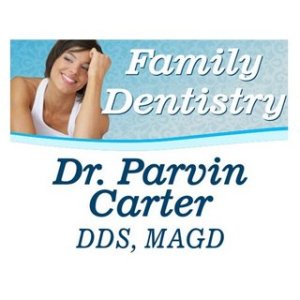Bad breath can have as devastating effect on a relationship as one’s cosmetic appearance. Fortunately, this problem is often easy to fix. What helps: Good oral hygiene, regular visits to your dentist, and ruling out any underlying conditions or other factors (please see below) that could make your breath less than pleasant.
Causes of Bad Breath ( Halitosis)?
Bad breath has many causes, including the following:
- Tobacco use. If you smoke, quit. Your bad breath may be due to other causes, too, but tobacco use is a guarantee of bad breath. If you are ready to quit, ask your doctor or dentist for advice and support.
- Dry mouth. If your mouth is extremely dry, there is not enough saliva to wash away excess food particles and bacteria, which can cause an unpleasant smell if they build up on the teeth.
- Infections. Bad breath that seems to have no other cause may indicate an infection elsewhere in the body. If you have chronic bad breath and your dentist rules out any oral problems, see your doctor for an evaluation. Bad breath can be a sign of a range of conditions including respiratory tract infections, chronic sinusitis or bronchitis, diabetes, or liver and kidney problems, so it’s important not to ignore the problem.
- Drinking alcohol. Alcohol-containing beverages may promote a dry mouth and cause bad breath. So don’t forget to floss after an evening out on the town, no matter how much you’re tempted to hop into bed and forget about it.
- What you eat, or don’t eat. Certain foods, such as garlic, contribute to bad breath, but only temporarily. Once they are absorbed into the bloodstream, the smell is expelled through the breath, but the odors remain until the body processes the food, so there’s no quick fix.
- Early morning. Saliva stops flowing while you sleep, so you may be prone to bad breath in the morning. If so, mornings may be the best time for your daily dental flossing.
- Being hungry or thirsty. When you’re dehydrated, there’s not as much saliva in your mouth, so you’re prone to bad breath and increased bacterial buildup. Drink enough fluids and remember to floss. Also, remember that chewing food increases the saliva in your mouth, so if you’re skipping meals or dieting, you may develop bad breath.
-
Tongue bacteria. Bacterial growth on the tongue accounts for significant number of cases of bad breath.
How to Stop Bad Breath?
- Keep good oral hygiene. Brushing thoroughly twice a day and flossing daily. Regular visits to your dentist, and ruling out any underlying conditions.
- Stay hydrated. If you can’t brush your teeth after a meal, drinking a lot of water can help speed up the process of cleaning harmful bacteria and debris from between your teeth. Drinking milk can even help deodorize some offensive breath odors.Avoid sugary drinks.
- Don’t drink too much coffee. It may be tasty, but coffee is a tough smell to get off the back of your tongue. Consider switching to an herbal or green tea.
- Chew sugarless gum. Doing so 20 minutes after a meal can help with salivaflow. Gum that’s 100% xylitol-sweetened can help reduce cavities, but it’s also “kind of cooling and gives you really nice fresh breath,” Frangella says.
- Be careful with breath mints. Sugar-free mints are OK for a quick fix but only mask the offensive smell and don’t do anything to remove harmful bad bacteria. Tempted to pick up a sugary mint as you leave your favorite restaurant? Don’t. The sugar will only sit on your teeth and make the problem worse, Frangella says.
- Use a tongue scraper. Consider using a tongue scraper like the one featured in the Scope Outlast Minibrush. Simply hold the scraper at the back of your tongue, and bring it forward, scraping gently but firmly along the tongue as you go. Another easy fix?
Dr. Parvin Carter has over 30 years of experience in Dentistry; she is a Preferred Provider of Invisalign and the director of A Redding Invisalign Center. She received her degree of Doctor of Dental Surgery, from Indiana University Dental School, in 1982, after which she immediately opened her private practice.
In July 1990 she received fellowship award from academy of General Dentistry. This award requires 600 hours of continuing education and passing required examination. In July 2000 Dr. Carter received Mastership award from Academy of General Dentistry. This is the highest award for continuing education. This award requires 800 hours of participation in dentistry specialties. According to the Journal of the Academy of General Dentistry, only 1% of US dentists achieve this high level of advancement.
Dr. Carter’s expertise are:
Invisalign, orthodontics, advanced TMJ treatment, oral surgery, sleep Disorders, placement of implants, restorations of cosmetic dentistry, whole mouth rehabilitation, fixed and removable prosthodontic, periodontics (soft tissue management), tooth and implant supported over dentures, endodontics, molars and anterior and sedation dentistry.
Dr. Parvin Carter is Certified and Preferred Provider of Invisalign. She has successfully treated over 368 patients with Invisalign. To find out more please see http://drparvincarter.com.
|

